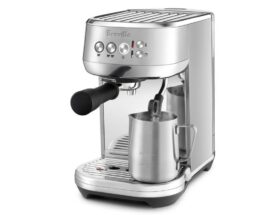
Is Coffee Bad for Your Teeth? Understanding the Impact on Dental Health
Welcome to our blog post on the impact of coffee on dental health. Coffee is one of the most popular drinks in the world, but many people are concerned about its effects on oral health, particularly on our teeth. In this article, we will delve into the question, “Is coffee bad for your teeth?” and provide you with insights into its impact on dental health. With surprising facts and expert advice, we will help you understand how coffee affects your teeth and provide valuable tips to maintain a healthy smile.
Table of Contents
- Is Coffee Bad for Your Teeth?
- Frequently Asked Questions about Coffee and Dental Health
- 1. Does coffee stain teeth?
- 2. Can drinking coffee lead to tooth decay?
- 3. Does coffee affect gum health?
- 4. Will using a straw while drinking coffee help protect teeth?
- 5. How can I minimize the negative effects of coffee on dental health?
- 6. Are there any alternatives to coffee that are better for dental health?
- 7. Should I avoid coffee completely for the sake of dental health?
Is Coffee Bad for Your Teeth?
As a coffee lover, it’s essential to understand the potential impact of your favorite brew on your dental health. While coffee offers numerous benefits like a caffeine boost and rich flavors, it also raises concerns regarding teeth staining, enamel erosion, and bad breath. Let’s dive deeper into these aspects to gain a better understanding:
1. Teeth Staining
Coffee, with its dark color and acidic nature, can lead to teeth staining over time. The active compounds present in coffee, known as tannins, can penetrate the enamel and leave behind unsightly yellow or brown stains. Regular consumption worsens the staining effect, making your smile appear dull.
To combat teeth staining, dentists advise practicing good oral hygiene. Regular brushing, flossing, and rinsing with an antibacterial mouthwash after your coffee fix can help minimize discoloration. Additionally, scheduling professional teeth cleanings can restore the whiteness of your smile.
2. Enamel Erosion
The acidity of coffee can weaken the protective layer of enamel on your teeth. Over time, this can lead to enamel erosion, making your teeth more susceptible to tooth decay, sensitivity, and even tooth loss.
To mitigate enamel erosion caused by coffee, consider drinking through a straw to minimize direct contact with your teeth. It’s also essential to wait for at least 30 minutes after drinking coffee before brushing your teeth to allow saliva to neutralize the acid. Using a toothpaste specifically formulated to strengthen enamel can also help combat erosion.
3. Bad Breath
The strong aroma of coffee is one of its pleasurable aspects, but it can also contribute to bad breath. Coffee, when consumed regularly, can dehydrate your mouth and decrease saliva production. This dry environment becomes a breeding ground for odor-causing bacteria, leading to persistent bad breath.
To prevent coffee-induced bad breath, ensure you stay hydrated by drinking plenty of water throughout the day. Chewing sugarless gum or using breath mints can also freshen your breath temporarily. Regular dental check-ups are crucial as dentists can identify underlying dental issues contributing to bad breath and provide suitable treatment.
In conclusion, while coffee offers an array of sensory delights and health benefits, it’s crucial to be mindful of its potential impact on dental health. By adopting good oral hygiene practices, being conscious of your coffee consumption habits, and seeking professional dental care, you can continue to enjoy your daily cup of joe without sacrificing your smile’s health and beauty.
Frequently Asked Questions about Coffee and Dental Health
1. Does coffee stain teeth?
Yes, coffee can stain teeth due to its high concentration of dark pigments. These pigments, called tannins, can penetrate the enamel and result in unsightly yellow or brown stains.
2. Can drinking coffee lead to tooth decay?
While coffee itself doesn’t directly cause tooth decay, it can contribute to it. Coffee is often consumed with added sugar or sweeteners, which can promote the growth of harmful bacteria in the mouth, leading to cavities.
3. Does coffee affect gum health?
Yes, drinking coffee can have a negative impact on gum health. Coffee is acidic, and prolonged exposure to high acid levels can irritate the gums, leading to inflammation and gum disease.
4. Will using a straw while drinking coffee help protect teeth?
Using a straw can minimize the contact between coffee and teeth, reducing the risk of staining. However, it’s important to note that this method may not provide full protection, especially if the coffee is consumed frequently throughout the day.
5. How can I minimize the negative effects of coffee on dental health?
There are several steps you can take to minimize the impact of coffee on your teeth. First, try to limit your coffee consumption and opt for lighter roasts, as they contain fewer pigments. Second, drink water or rinse your mouth with water after consuming coffee to help wash away some of the acids and pigments. Lastly, maintain a good oral hygiene routine by brushing and flossing regularly.
- Limit coffee consumption
- Choose lighter roasts
- Drink water or rinse after coffee
- Maintain good oral hygiene
6. Are there any alternatives to coffee that are better for dental health?
If you’re concerned about the impact of coffee on your teeth, there are alternative beverages you can try. Herbal tea, green tea, and white tea, for example, are less likely to stain teeth and offer various health benefits.
7. Should I avoid coffee completely for the sake of dental health?
Absolutely avoiding coffee might not be necessary, especially if you enjoy it. It’s more about being mindful of the potential effects and taking steps to mitigate them. By practicing good oral hygiene and consuming coffee in moderation, you can still enjoy your favorite brew without compromising your dental health.








